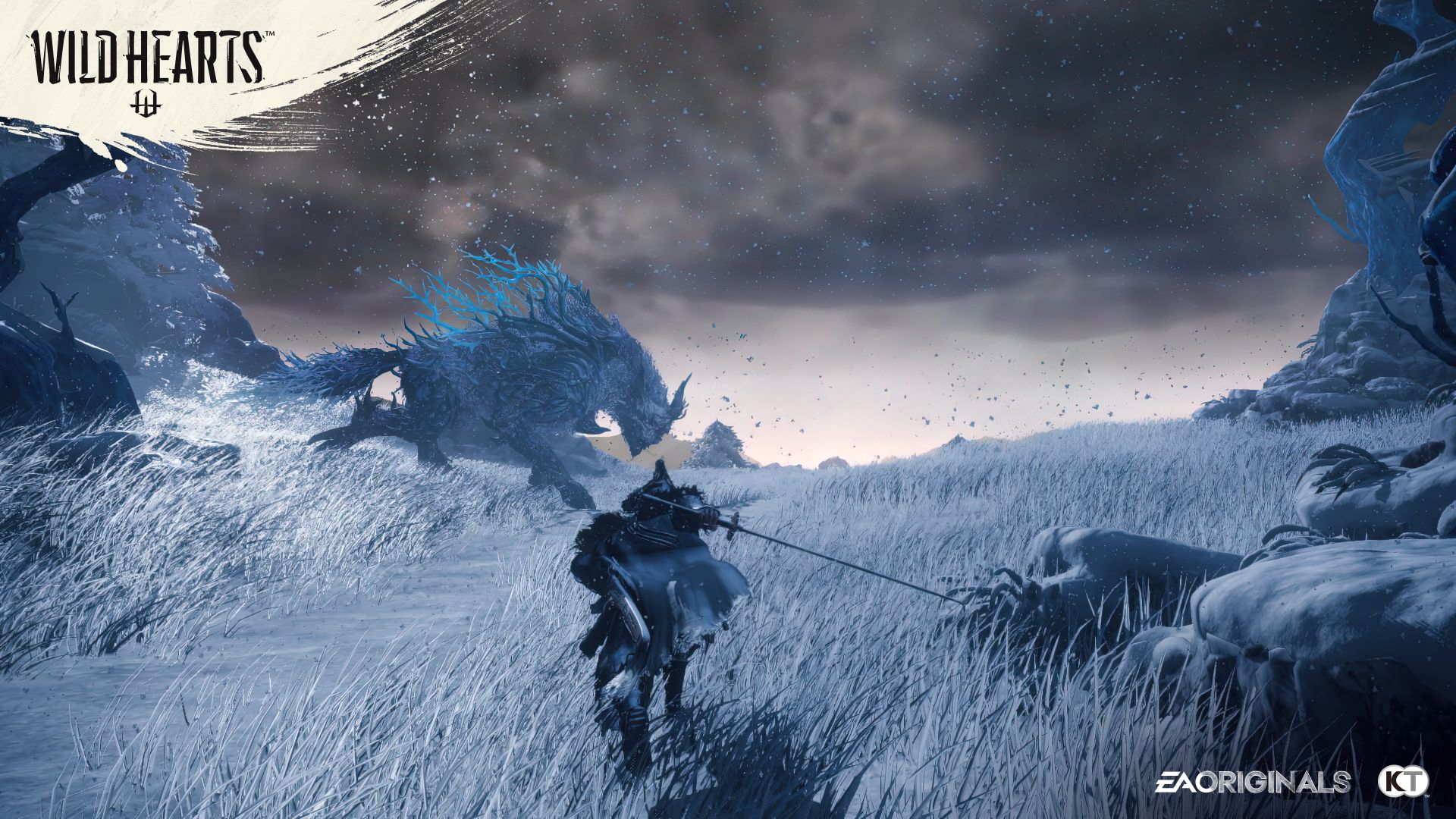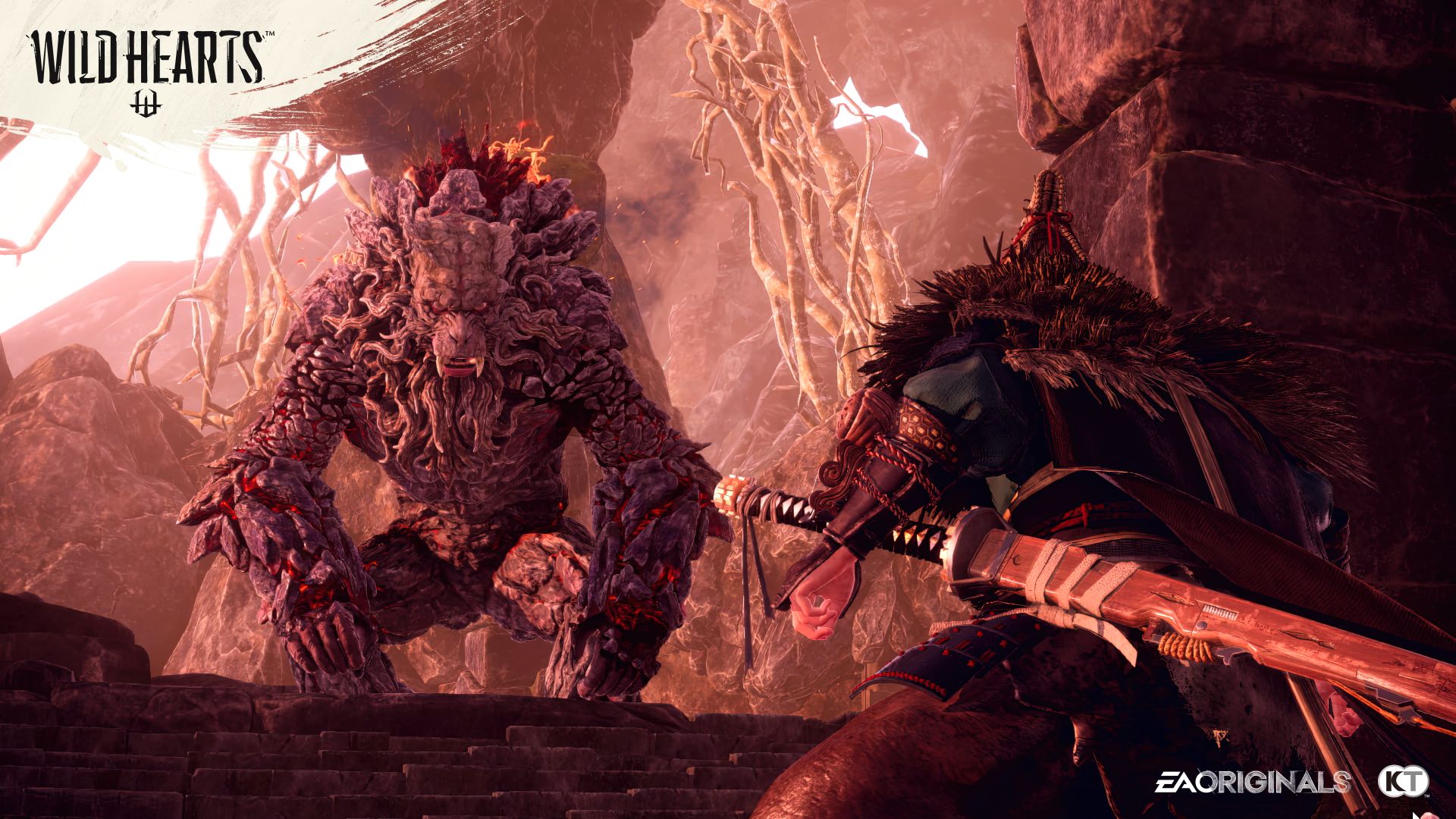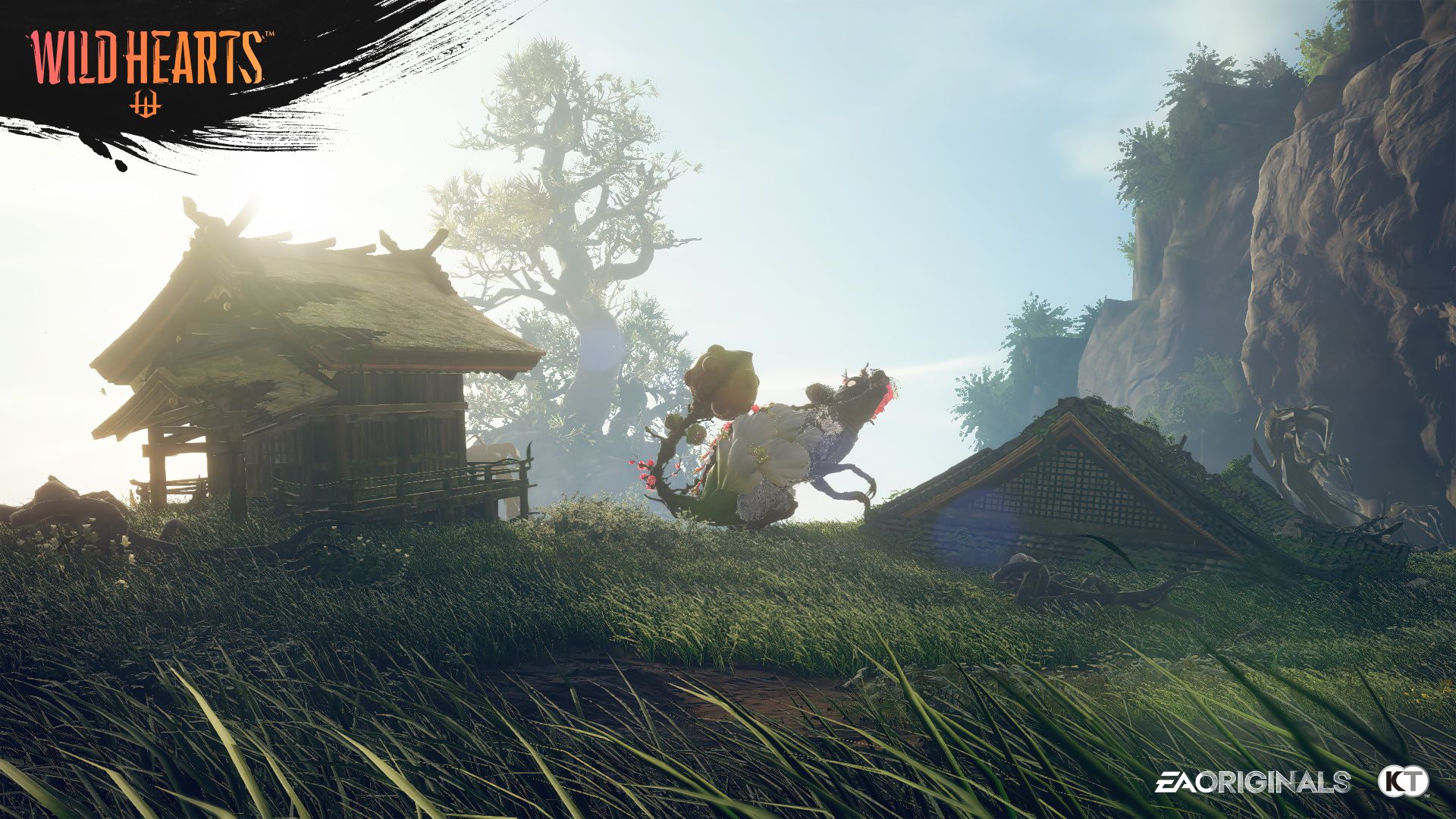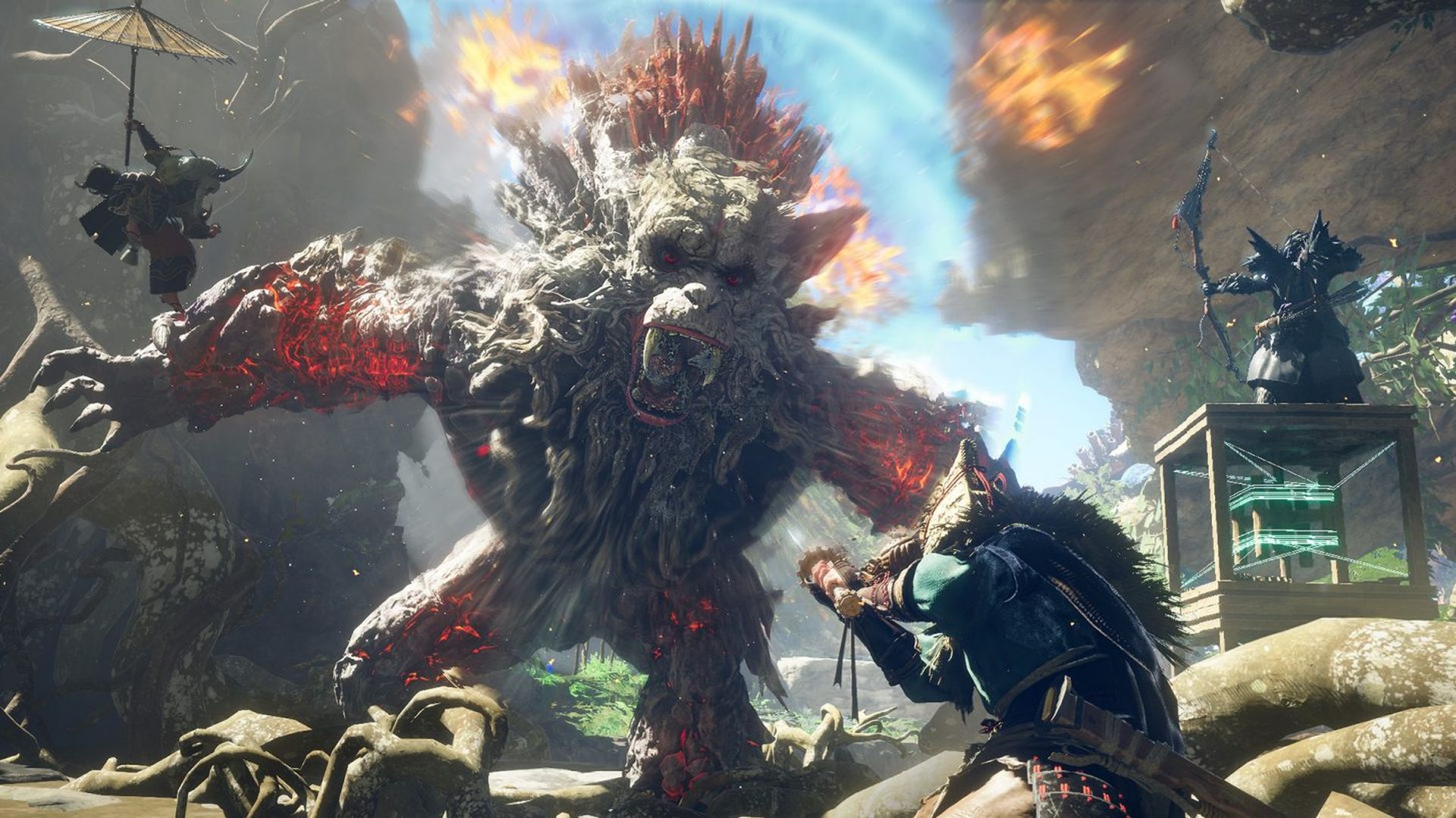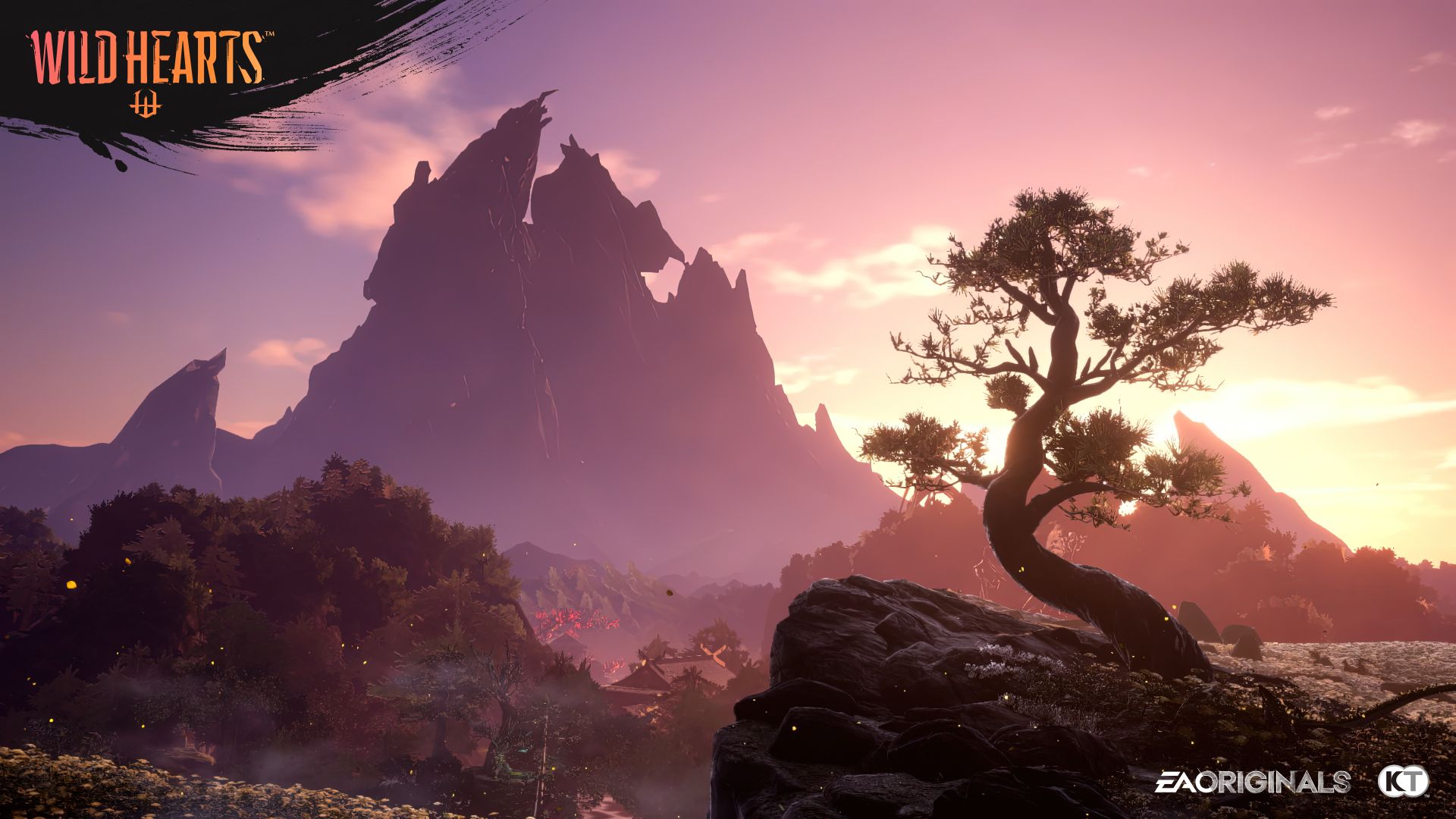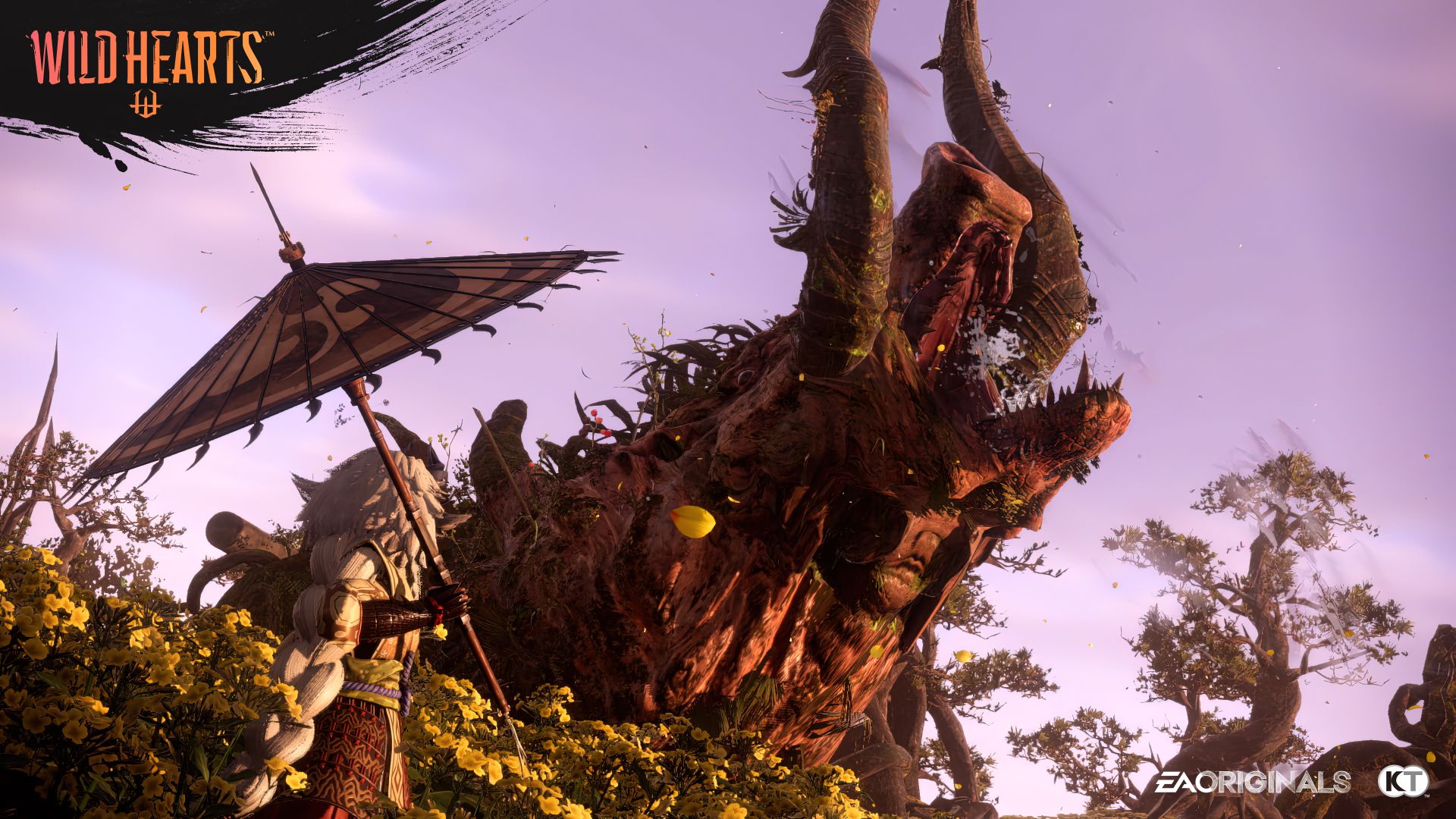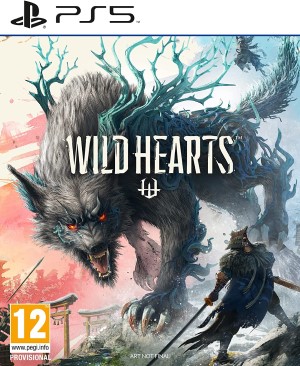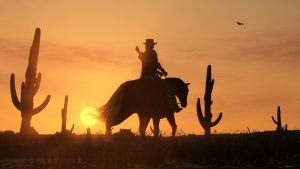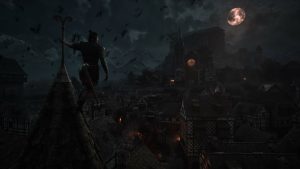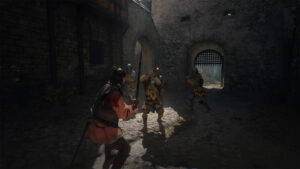
Koei Tecmo recently unveiled its collaboration with EA’s EA Originals label to publish its monster hunting game Wild Hearts. Developed by a team that has previously worked on games like Toukiden, Wild Hearts clearly has some pedigree and experience behind it, and EA’s publishing efforts are bound to make it one of the more noteworthy releases of 2023. We got access to an early build of Wild Hearts, and were given the chance to play through what essentially acts as the game’s opening tutorial and first few hunts. Without further ado, here’s what we learned from our hands-on time with Wild Hearts.
Hunting Monsters
First and foremost, Wild Hearts is a monster hunting game. While there are a few other games in the genre, it has largely been dominated by Capcom’s Monster Hunter franchise, and with good reason. Wild Hearts, however, looks to offer an alternative with all the right ingredients. It has the same core game loop as Monster Hunter, while sprinkling in its own ideas here and there to make it a completely unique experience.
At no point does Wild Hearts feel like a poor rip-off of Monster Hunter. Rather, owing to the strong execution of its own ideas, Wild Hearts definitely feels like its own take on the genre. From what we were able to play, its monsters—dubbed Kemono—are wonderfully designed, each one using attacks that would make sense for monsters of their kind to use.
While I do wish Wild Hearts made more of an earnest effort in explaining how its ecology works—one of the low key most interesting things about the Monster Hunter franchise—it’s quite likely that the preview build was limited in what it could show off and we’ll see things better explained in the full game.
The Weapons
One of the more interesting ways that Wild Hearts sets itself apart from its contemporaries is the choice of weapons it offers. Alongside standard options like a katana, a bow, or a nodachi, Wild Hearts also offers some weirder options, like an umbrella that acts as a weapon focused on aerial attacks. In true genre fashion, each weapon feels unique enough for the player’s choice of gear to have a meaningful impact on their playstyle.
When it comes to their movesets, all of the weapons feature extensive options for combos and engagement. Attack animations also tend to flow off each other quite seamlessly, allowing for interesting combos to happen. Where the standard katana focuses quite a bit on fast ground-based attacks, the umbrella instead focuses on fast-hitting aerial attacks, allowing you to take to the air at the press of a button and perform a variety of moves, including repositioning, without touching the ground for a fair amount of time.
All of this works quite closely with the game’s most unique hook…
How Building Sets it Apart
Building things in the middle of hunts is a big deal in Wild Hearts. Players can, at the press of a button, put down a wooden block to jump off, or a spring to quickly dash in a different direction. These small structures, dubbed Karakuri, are closely tied to how the Kemono in Wild Hearts are designed. Staggering a monster with your regular attacks, for example, is a great time to build a 3-blocks tall tower to jump off and land a massive blow.
Unlocking new patterns for your Karakuri is also an important form of progression. Having fought a couple of Kemono leading up to the preview build’s final hunt, I was able to unlock the Bulwark pattern, which is created by placing two columns of blocks that are three blocks tall. The Bulwark pattern creates a small wall in front of you, allowing you to catch your breath and pushes back any monster that might do a charge attack in the meantime.
Alongside building things in the middle of fights, you also build new Karakuri as a form of progression. To upgrade your weapons and armour, for example, you’ll have to build a forge. Interested in going out on a quick adventure and maybe hunt a Kemono along the way? Building a Tower will make tracking Kemono down much easier. How about improving the ingredients you have to make your next meal offer better buffs? Better build a drying rack to season all your meats and mushrooms.
In a way, the Karakuri system quite cleverly blends in elements of survival games with those of the typical monster hunting game.
Crafting
We can’t forget about the primary form of progression in the monster hunting genre—the crafting. As you’d expect, you can collect parts from the Kemono you’ve hunted to create better equipment. The preview build allowed me to hunt three Kemono, offering a total of four different armour sets. There isn’t much new here to comment on—if you’ve played a Monster Hunter game before, you won’t find anything different here.
If you haven’t played a Monster Hunter game before, here’s the quick explanation. You use the parts you get from hunting monsters, or Kemono in Wild Hearts, to forge new armour pieces. Each piece of armour offers a new skill, and different pieces from the same armour set often tend to give you skills that work well together.
The Focus on Story
While I wasn’t able to experience enough of the story in Wild Hearts to be able to judge the quality of its writing, I can safely say that the game focuses much more on its story than its contemporaries in the genre. The early storyline in the preview build largely revolved around a couple of survivors and figuring out how to get to a settlement.
While the focus on its story made for a relatively sluggish start constantly interrupted by conversations and cutscenes, the best thing I can say about it is that it does well to teach you its various gameplay mechanics. Concepts like the Hunters, the Kemono, and Karakuri are given interesting explanations in Wild Hearts, and by the end of the preview build’s story, I was quite interested in seeing where the plot would go next.
The Open World
Wild Hearts features what is described by its developers as a semi-open world. The preview build let me roam around to my heart’s content in its opening zones, and despite its relatively small size, it was a lot of fun to explore. The opening areas featured a surprising level of variety in its various biomes, and exploration always felt rewarding thanks to the fact that you’ll always find something, be it materials for crafting, ingredients for cooking, or even the Tsukumo—small mechanical things that follow you around and fight alongside you.
The open world also works quite well with the Karakuri system, since you also unlock buildings like a zipline that help you traverse through the deceptively-dense world. The zipline in particular was a lot of fun to set up and use, and was reminiscent of Death Stranding where you could build entire networks of ziplines to help you get around faster.
How Good it Looks
Wild Hearts is a good looking game. It makes brilliant use of a bright colour palette, evoking the ancient Japanese aesthetics that Koei Tecmo were going for. While it won’t be winning any rewards for its fidelity, the art direction does more than its fair share to help make Wild Hearts look good and unique. The open world looks great, and it never gets in the way of gameplay, since things you can and can’t traverse are quite clearly marked with good art direction.
The Kemono themselves also have interesting designs, with the studio opting to go for themes where flora and fauna come together in the monster designs. The Kingtusk, for example, looks like a giant boar wrapped around with vines, shrubs, and flowers. This also made it clear that the Kingtusk will have attacks that will make use of the vines.
While it looks great, however, things weren’t exactly perfect. I faced quite a few performance issues while playing Wild Hearts, and it struggled to keep a stable frame rate. It’s quite likely that the early build I was playing hadn’t been optimised yet, and I hope that when it’s out, Wild Hearts will run at a smooth frame rate. Despite the performance issues, however, I couldn’t really stop playing Wild Hearts just because of how fun and well-made it otherwise is, and there are few better ways to praise a game if you ask me.








